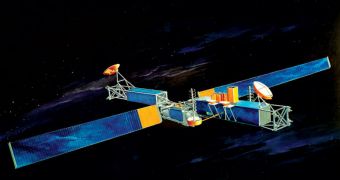Over the past few weeks, various rumors have been making the rounds on science websites, contending that satellites would be destroyed during the next solar maximum, which is to take place in a couple of years. This is simply not true, experts say.
Many people like pushing apocalyptic scenarios through various media channels, in hopes of increasing their ratings, and attracting more readers, but accuracy is sometimes sacrificed in the process.
Such was recently the case as news pieces began making prophecies that the navigation satellites will be destroyed by increased solar activities, and that we will be left in the dark, communications-wise.
While it's true that some ill-effects may be felt following massive solar flares, the situation isn't by far as black as painted, simply because those who built the spacecrafts designed them specifically with such events in mind.
One of the things that the Sun produces vast amounts of is electromagnetic radiation. If anything, these should be the first to affect the functioning of satenav spacecrafts.
Charged particles emanating from the star can usually burn up electronic circuits, and induce electromagnetic charges that destroy the very materials on which the circuits are embedded.
But the satellites have been built specifically to endure such conditions, and feature radiation-hardened components and shielding. Key systems and subsystems are also doubled by back-up ones, just in case something goes wrong.
In the worst-case scenario, satnav satellites might rely messages back to their users, saying that the signals they sent cannot be trusted for a period of time.
This period ends when the solar storm affecting the satellite constellation, and the layer of the atmosphere called the ionosphere, passes, or is reduced in intensity.
Space agencies such as the European ESA, the Russian RosCosmos and the Chinese CNSA – which are currently engaged in building their proprietary satellite navigation systems – are all taking the necessary steps to protect their investment.
The older, American-built GPS constellation is most at risk, Space Fellowship reports, but even it has some redundancy built in.
In the end, only time will tell whether or not we will experience a global communications blackout. But just don't hold your breath waiting for it.

 14 DAY TRIAL //
14 DAY TRIAL //